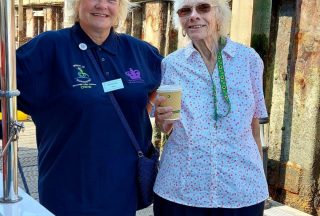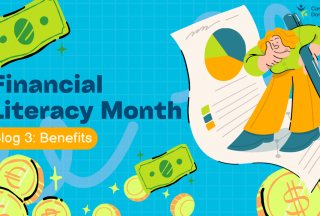Grace’s husband Ronan suffers from COPD, Congestive Heart Failure, Osteoporosis, Type II Diabetes (well controlled) and has to take medication to prevent blood clots. He generally feels unwell a lot and is also fed up that he cannot live a full life and that he has to rely on Grace to care of him.
Grace has been caring for him for 3 years without any breaks, apart from grocery shopping, and snatching some time for her regular chiropractic treatments. This leaves Grace essentially taking charge of Ronan’s daily life, making medical appointments and supervising the ordering of all his medication. Ronan can do little around the house, apart from some food preparation and a little cooking. Even then, he has difficulty standing for long as he’s so unsteady on his feet, so everything in the house falls to Grace to sort out.
She says it does help to have a cleaning lady who comes for two hours a week and a gardener who has been helping her tidy up the garden. Ultimately, Grace suggests it is her inbuilt strength and sense of duty that keeps her caring. She notes how difficult it is for someone like her, born in the 1930s, to ask for help because this was just not an option when she was growing up.
Even getting help from family is difficult. Relatives, such as Ronan’s brother, are in even poorer health than Ronan and Grace. During the Covid-19 pandemic, lockdowns have meant that Grace’s two cousins, who would usually offer some help, haven’t been. Grace misses that basic pleasure of meeting family and friends, conversing with them, hugging them and feeling their warmth. She also has had to give up other things she did for herself outside the house which have not been running during the pandemic, like her tai chi class for one hour a week.
Grace’s friends can be a great help and support but she has been unable to see two friends who live nearby, other than distanced on doorsteps, in order to stay safe. She hopes that, as she and Ronan have had their second vaccines, they will feel safer to meet up for a cup of tea.
Grace says “At the age of 83, I find this caring role exhausting, some days I am running around non-stop. I have no life and feel I must surely deserve one. When all this trouble started I didn’t think of myself as a carer but it was just something I did for the person I lived with. Then somebody pointed out what would happen to Ronan if I wasn’t around or well enough to look after him.”
Grace says Ronan’s Attendance Allowance helps and that he has been assessed by Rehab teams. As a result, Grace and Ronan now have some more useful aids around the home and lately their GPs have been more helpful attending to his needs.
Despite this, Grace finds it hard to care for her own needs as well as her husband. She also finds it hard to imagine any chance of respite or a holiday. It leaves her often feeling overlooked and that the energy and effort it takes to care is left unrealised. She describes how difficult it is as a carer because it can be hard for people to understand how overwhelming all the responsibilities of caring are, especially during a global pandemic.
Grace says wants others to know about her life and what the lives of millions of other unpaid carers are like on a daily basis.



